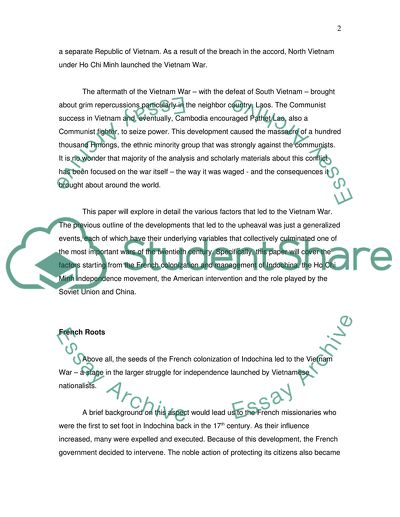Cite this document
(The Causes of the Vietnam War Research Paper Example | Topics and Well Written Essays - 4000 words, n.d.)
The Causes of the Vietnam War Research Paper Example | Topics and Well Written Essays - 4000 words. Retrieved from https://studentshare.org/history/1728161-what-caused-the-vietnam-war-1964-1973
The Causes of the Vietnam War Research Paper Example | Topics and Well Written Essays - 4000 words. Retrieved from https://studentshare.org/history/1728161-what-caused-the-vietnam-war-1964-1973
(The Causes of the Vietnam War Research Paper Example | Topics and Well Written Essays - 4000 Words)
The Causes of the Vietnam War Research Paper Example | Topics and Well Written Essays - 4000 Words. https://studentshare.org/history/1728161-what-caused-the-vietnam-war-1964-1973.
The Causes of the Vietnam War Research Paper Example | Topics and Well Written Essays - 4000 Words. https://studentshare.org/history/1728161-what-caused-the-vietnam-war-1964-1973.
“The Causes of the Vietnam War Research Paper Example | Topics and Well Written Essays - 4000 Words”, n.d. https://studentshare.org/history/1728161-what-caused-the-vietnam-war-1964-1973.


